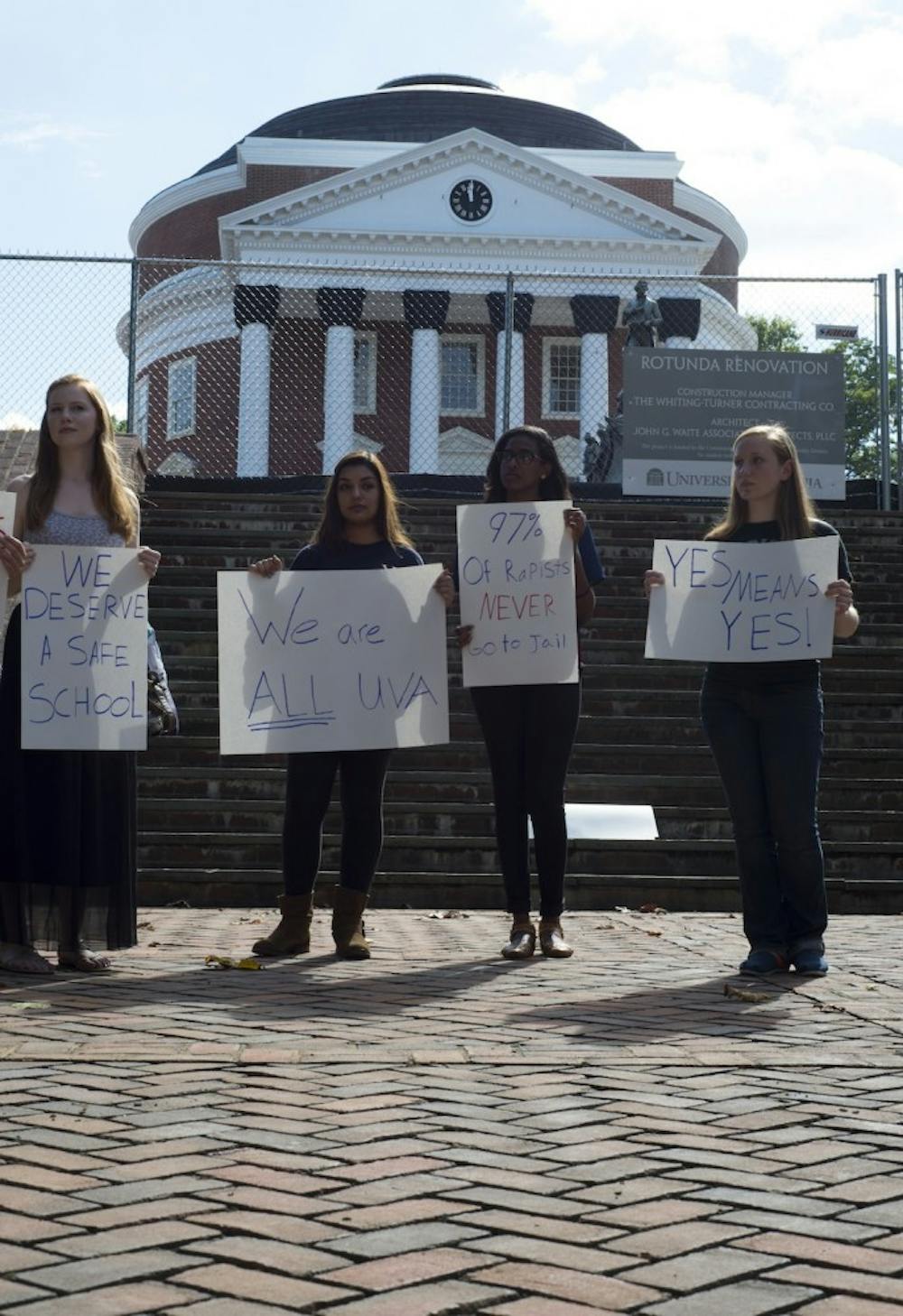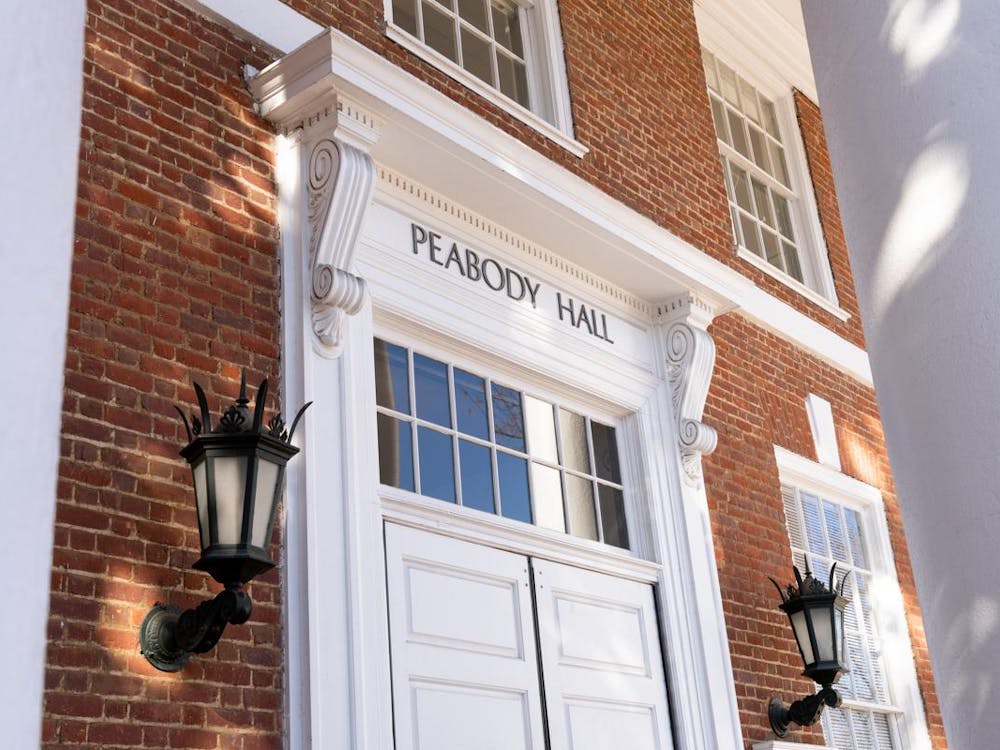Students and members of the Charlottesville community gathered at the Rotunda Friday to rally against gender-based violence at the University and in the greater Charlottesville area.
Fourth-year College student Greg Lewis, a leader of the rally, said it was held in response to the disappearance of second-year College student Hannah Graham, as well as what he said is a pattern of sexual assault and gender-based violence at the University.
“This is a group of us — of concerned people and concerned community members and concerned U.Va. students — getting together to address this and put in on the table,” Lewis said.
The event was originally scheduled for Sept. 19, but it was moved to Sept. 26 to allow the group more time to plan the event.
“We wanted more time to organize, to get people out, to get people engaged in a conversation,” Lewis said. “We also wanted to give space to Hannah’s friends and her family … so we decided to move it to this Friday so we could all mobilize together and come out to support survivors of gender-based violence.”
Claire Kaplan, director of the Gender Violence and Social Change Program for the University’s Women’s Center, said the different forms of violence present at the University serve as forms of oppression.
“The conversation needs to start at this level, and we need to talk about violence, sexual violence, gender-based violence, power-based violence, as a form of oppression,” Kaplan said. “If you think of it that way it makes it easy to think of other forms of oppression as being interlinked with that. We can’t have a conversation about this without talking about other kinds of oppression because they overlap.”
Anna Boynton, a fourth-year College Student and another rally leader, spoke specifically about sexual violence toward women at the University.
“A study here at U.Va. in 2009 found that 33 percent of sorority women have been sexually assaulted during their time here, and around 7 percent of women in the general population have been as well,” Boynton said. “I think these numbers are really unfortunate, they’re not necessary.”
Boynton said women who attend college are more likely to be sexually assaulted than women who do not.
“We do not need to sacrifice the integrity of our bodies for the integrity of our minds,” Boynton said. “We see our colleagues being expelled for honor violations on our exams, but we haven’t seen in 14 years a single expulsion because of rape. I think that for me as a woman this tells me that this university values my test scores over my body.”
Many different University groups supported the rally, including Queer and Allied Activism, U.Va. Students United, the Women’s Center and Students for Peace and Justice in Palestine.
Yahiya Saad, third-year College student and president of Students for Peace and Justice in Palestine, said gender violence is not only a University problem, but a global one.
“The assault of a U.Va. student is just as bad as the assault of a Charlottesville community member, is just as bad as the assault on a Palestinian refugee, is just as bad as the assault on a woman, or even a man anywhere in this world,” Saad said. “I got super enraged about this issue just a couple weeks ago. ... Now is the time to get people to be attentive, to look at these issues.”
Many members of the rally held signs with phrases like “We deserve a safe school,” “1 week 1 disappearance 3 sexual assaults — this needs to end” and “It’s on us.” Lewis led the crowd in chants shouting, “Yes means yes” and, “end gender violence now.”
“I believe that U.Va. has a dominant culture, and I think that dominant culture marginalizes women, marginalizes people of color, marginalizes queer people and marginalizes community members,” Lewis said. “That’s not the whole community, but it’s a few individual members, and one manifestation of those marginalizations is the problem of gender-based violence. And I don’t think anyone can deny that this is a problem.”






